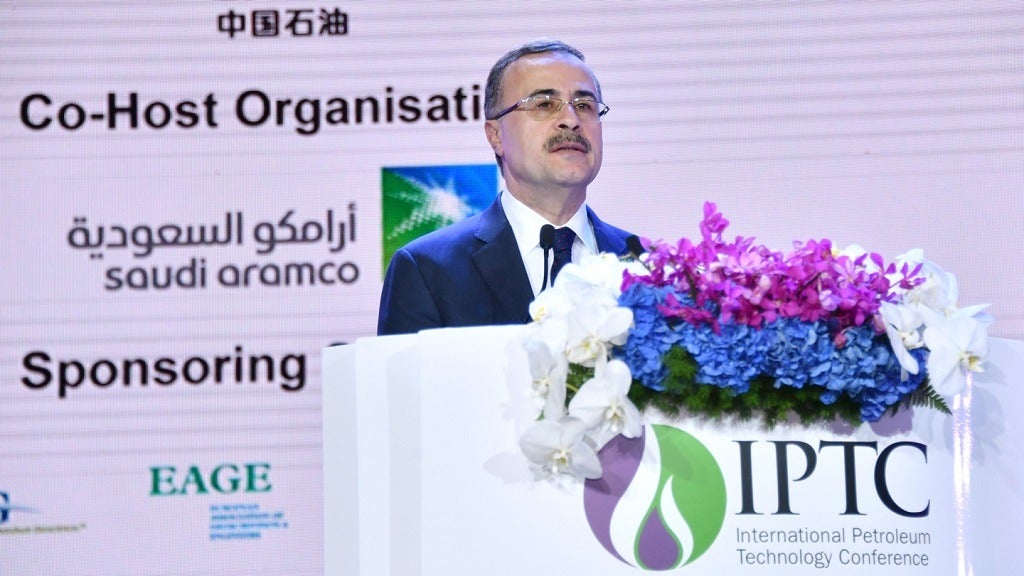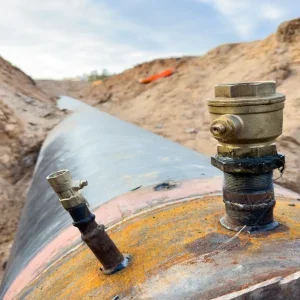
Saudi Aramco took its place as the world’s most profitable company on 1 April when it released its debut bond, a move intended to “inspire confidence” ahead of its global expansion strategy, according to market intelligence firm GlobalData.
The company generated a gargantuan $111bn (£85bn) last year, comfortably topping second-placed Apple’s $59.5bn (£45.6bn) which became the first company to be valued at more than $1tn (£770bn) in August.
Samsung, Google’s parent company Alphabet and JP Morgan Chase came third, fourth and fifth with $35.1bn (£26.9bn), $30.7bn (£23.5bn) and $30.7bn (£23.5bn), respectively, while Aramco’s industry rivals Shell and Exxon Mobil took home little over $20bn (£15.4bn) a piece.
Senior oil and gas analyst at the GlobalData firm Anna Belova said: “As the world’s most profitable company, it can be argued that Aramco does not need to resort to debt-offering and that the bond serves as a secondary purpose to inspire confidence and offer new transparency into its finances, as the company fires up its global expansion strategy.
“Beyond the stated goal of acquiring SABIC [a Saudi petrochemicals giant], Aramco is pursuing multiple gas, midstream and downstream opportunities worldwide, one of which is a large stake in a new Russian-integrated LNG project – Arctic LNG-2.
“Following Aramco’s prospectus release, details began to emerge that the company’s share in Arctic LNG-2 will exceed 30%.
“With similar timing the government of Turkmenistan highlighted that Aramco could participate in the giant TAPI pipeline, connected Turkmen fields to India’s markets.
“Russian and Turkmen governments might be the first interests swayed by the bond details, but will not be the last.”
Greenpeace on Saudi Aramco’s debut bond
Reacting to Aramco’s debut bond, Julien Jreissati, campaigner at Greenpeace MENA, said: “The Saudi government should invest profits generated by Saudi Aramco into diversifying its economy and transitioning its energy system towards renewable energy.
“While oil has undoubtedly contributed in leapfrogging the kingdom into the modern era, costs on the environment and climate, not factored in Aramco’s balance sheet, are increasingly becoming unbearable.
“Furthermore, fuelled by extreme weather events, international climate policies and green technology advancement, the peak oil demand is coming sooner rather than later.
“It is time for Saudi Arabia to look to up to the sky where its true wealth resides. The sun can be the engine that drives the kingdom’s future prosperity.”






